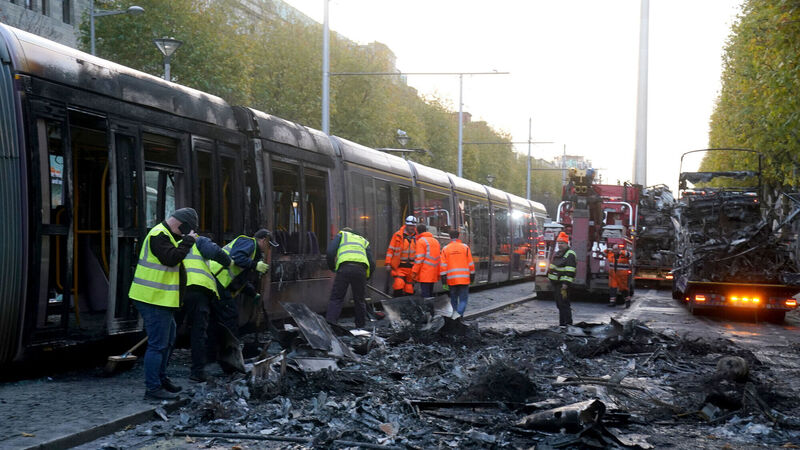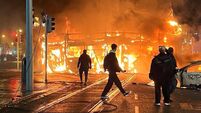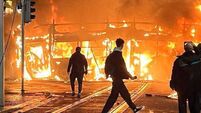Letters to the Editor: The real ‘fascism’ we face is weaponised snobbery

Workers clearing debris from a burned-out bus and Luas tram on O'Connell Street in the wake of the violence scenes in Dublin city centre on Thursday November 23. Picture: Brian Lawless/PA











